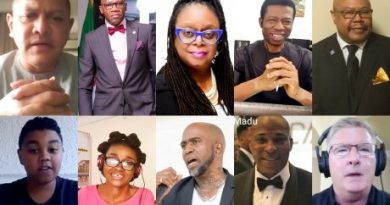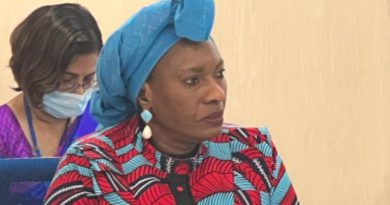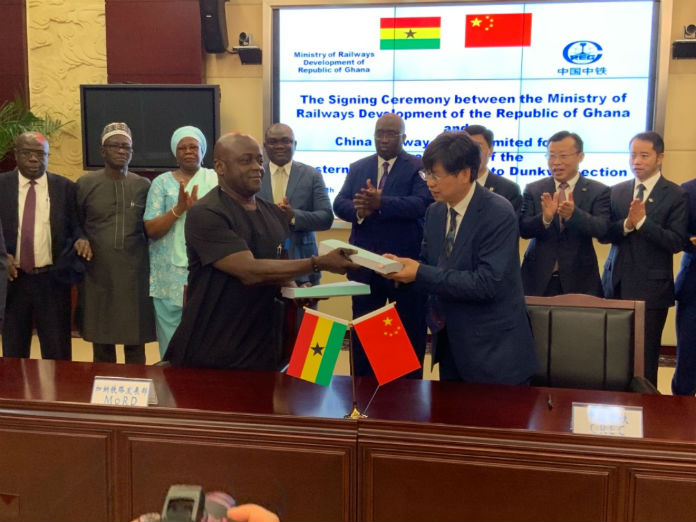Pope Francis holds historic public mass in Abu Dhabi
Reuters
Pope Francis has held an historic public mass for an estimated 170,000 Catholics at a stadium in the capital of the United Arab Emirates, at the end of the first papal visit to the Arabian Peninsula, where Islam was born.
Francis waved at the enthusiastic crowd carrying yellow Vatican flags and banners as he rode in an open-top popemobile into Zayed Sports City Stadium, where an altar with a large cross was set up for the unprecedented open-air service in a country that normally restricts worship to inside churches.
The UAE borders Saudi Arabia, the birthplace of Islam, but unlike its larger neighbour, which outlaws all non-Muslim places of worship, Abu Dhabi allows Christians among its large migrant workforce to practise their faith discreetly.
Francis, who has made outreach to Muslim communities a cornerstone of his papacy, wrapped up his historic three-day visit with the mass.
The pope’s public comments in Abu Dhabi have centred on calls to end wars across the Middle East and protect the rights of all citizens. In a homily on Tuesday, he turned to the tens of thousands of migrant workers living in the Emirates.
“It is most certainly not easy for you to live far from home, missing the affection of your loved ones, and perhaps also feeling uncertainty about the future,” the pope said. “But the Lord is faithful and does not abandon his people.”
Pope Francis’ trip has been warmly welcomed by Filipino and Indian Catholics among the UAE’s huge migrant workforce. About one million Catholics live in the country – one in 10 UAE residents.
Asian nationals make up some 65 percent of the population and are crucial to all sectors in the oil-rich Gulf state, from construction to services and hotels.
The son of Italian immigrants who was raised in Argentina, Jorge Bergoglio – as Pope Francis is otherwise known – has paid particular attention to migrants and refugees during his papacy.
Inside the stadium on Tuesday, 50,000 Catholics with tickets to the mass cheered the pope on, with one small group hoisting a pink poster board which read: “We the Catholics of Yemen love you”.
Another 120,000 gathered outside, watching via video link on large screens.
Parishes across the UAE said 135,000 tickets to the pope’s mass were distributed to parishioners. Some 4,000 tickets had been given to Muslims to attend the mass, according to the local churches.
A choir sang hymns as the pope, joined by priests of different nationalities, began the service at around 10:30 am (0630 GMT), broadcast live on Emirati television.
The UAE invited the pope to visit as part of its 2019 “Year of Tolerance” which has its own designated ministry. Tolerance Minister Sheikh Nahyan bin Mubarak greeted the crowd at the stadium.
On Monday, the pope called for an end to wars in the turbulent Middle East, including in Yemen and Syria, at a meeting with a top sheikh and rabbi in the UAE.
All religious leaders had a “duty to reject every nuance of approval from the word war”, he told the interfaith meeting.
“I am thinking in particular of Yemen, Syria, Iraq and Libya,” he said.
Yemen is in the grip of what the UN calls the world’s worst humanitarian crisis, triggered by the intervention of Saudi Arabia, the UAE and their allies in a civil war between the government and Shia Muslim rebels.
While the pope did not openly discuss politics, he called for “the full recognition” of the rights of people across the Middle East, a potential reference to Christian minorities and communities including Shias in Saudi Arabia, refugees, migrants and stateless peoples.
“I look forward to societies where people of different beliefs have the same right of citizenship and where only in the case of violence in any of its forms is that right removed,” he said.
At their meeting Monday, the pope and Sheikh Ahmed al-Tayeb, the imam of Cairo’s Al-Azhar, Sunni Islam’s prestigious seat of learning, signed a document on “human fraternity for world peace”, hailed by the Vatican as an “important step forward in the dialogue between Christians and Muslims”.
It called for “freedom of belief”, the “promotion of a culture of tolerance”, the “protection of places of worship” and “full citizenship” rights for minorities.




